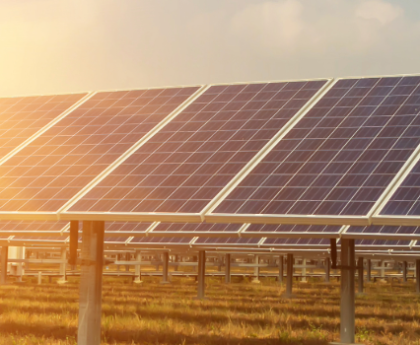This newly announced tariff on solar cells follows suit on US Secretary of the Treasury, Janet L. Yellen saying in April that the US “wouldn’t want to rule out” protective trade measures to combat overcapacity of solar PV and energy storage manufacturing in China.
The increased tariffs on solar cells could make difficult the procurement of non-US made capacity due to the US facing an imbalance of domestic module capacity versus cells. In a guest blog in December last year, the advisory body, Clean Energy Associates (CEA) highlighted the disparity between module production capacity announced since the passing of the Inflation Reduction Act (IRA) and further upstream capacity to produce materials such as polysilicon.
“While we are still digging into the details, we’re glad to see the Biden administration take a step to strategically re-align 301 tariffs to help onshore US solar manufacturing and support solar manufacturing workers. As America works to build out manufacturing in key clean energy supply chains to reduce the country’s reliance on China’s supply chains, we need to use every tool at our disposal to boost the U.S. solar manufacturing industry,” said Mike Carr, executive director of the Solar Energy Manufacturers for America (SEMA) Coalition.
Another tariff increase directed towards Chinese goods, relates to batteries both for lithium-ion electric vehicle (EV) batteries and non-EV batteries. In both instances tariffs will increase from 7.5% to 25%, although the timeframe will be different. For EV batteries this will occur in 2024, while for non-EV batteries it will happen in 2026. Finally, a tariff rate on battery parts will increase from 7.5% to 25% in 2024.
New AD/CVD petition
This is the latest development in trading tariffs between the US and China, which saw last month a consortium of solar manufacturers – including First Solar, QCells and Meyer Burger among others – filing an antidumping and countervailing duty (AD/CVD) petition to the US Department of Commerce (DOC) and International Trade Commission (ITC), alleging “potentially illegal trade practices by Cambodia, Malaysia, Thailand, and Vietnam that are injuring the US solar industry”.
US renewables firm Clean Energy Associates (CEA) predicted that the solar industry’s latest anti-dumping and countervailing duty (AD/CVD) petition could result in a potential bottleneck of duty-free solar cells.
A previous AD/CVD case, brought by manufacturer Auxin Solar, found in August 2023 five solar manufacturers guilty of circumventing US import tariffs. However, no duties have yet been collected due to Biden introducing a two-year waiver on the tariffs that is set to end next month.
Lifting bifacial exemption
A report from Reuters last month mentioned that the Biden administration was expected to lift a trade exemption for bifacial solar modules imported to the US. This report came only mere weeks after two US senators – Jon Ossof and Reverend Raphael Warnock – urged the Biden administration to lift the exemption – under Section 201 of the Trade Act of 1974 – in order to support the domestic solar manufacturing industry.
This post was originally published on 3rd party site mentioned in the title of this site






